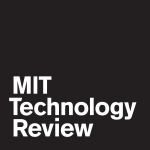April 28, 2022
Tech Policy Lab Releases Whitepaper on Agricultural Technology Policy

Ways to Grow: New Directions for Agricultural Technology Policy New Tech Policy Lab whitepaper highlights need for balance between expanding agricultural technology and investment supporting regional production SEATTLE, Wash., April 27, 2022 – The pandemic opened our eyes to a longstanding reality: the American food system cannot handle disruption. And there is another crisis on […]
MoreApril 27, 2022
Co-Director Featured on NIST Workshop Panel on AI Risk Management Framework
NIST

TPL Co-Director Batya Friedman was featured on a panel discussing how to keep human values and ethics at the core of AI design at a NIST workshop on AI risk management framework. NIST stands for the National Institute of Standards and Technology and is part of the US Department of Commerce. https://www.nist.gov/news-events/events/2022/03/building-nist-ai-risk-management-framework-workshop-2
MoreApril 14, 2022
Tech Policy Lab Plays Role in Last Week Tonight Episode on Data Brokers

On April 10th, Last Week Tonight aired an episode on Data Brokers. The Tech Policy Lab played a role in that episode with Co-Director Ryan Calo serving as a consultant. The show also used a method to explain concerns with data brokering, which appears to be a method that was developed by Co-Director Yoshi Kohno, […]
MoreMarch 16, 2022
TPL Faculty Associate concerned about language models roles in AI
MIT Technology Review

With technology continuing to improve, tech companies have been analyzing what the future of search may pan out to me. Voice assistants like Siri, Alexa, and much more have called into question the possibility of chatbots and AI replacing search engines. Emily M. Bender, a UW professor studying studies computational linguistics and ethical issues in natural-language processing, […]
ArticleMarch 10, 2022
Co-Director named ACM Fellow
ACM

The Association for Computing Machinery has recently named its 71 fellows for this research that continues to shape technologies we use daily and accomplishments in the computing space. Batya Friedman, Co-Director of the Tech Policy Lab was recently highlighted in this list for contributions to human values in the technical design process.
MoreFebruary 25, 2022
TPL Research Assistant quoted in Salt Lake Tribune on Difference Between Descriptive Data and Prescriptive Data
The Salt Lake Tribune

TPL Research Assistant and UW School of Law PhD student María Angel was quoted by the Salt Lake Tribune in explaining the difference between how descriptive data is used, and the vulnerabilities that come along with it, versus prescriptive data. https://www.sltrib.com/news/2022/02/24/utah-based-qualtrics-made/
MoreFebruary 14, 2022
Co-Director on five things to know about robots
University of Washington Magazine

TPL Co-Director Ryan Calo was featured in a short video produced by University of Washington Magazine entitled 5 things to know about robots. View the video here: https://magazine.washington.edu/feature/robots-ryan-calo/.
MoreFebruary 9, 2022
New faculty associate Joe Lott

The Tech Policy Lab has welcomed a new faculty associate, Joe Lott. Joe is an Associate Professor in the College of Education at the University of Washington. Joe is the co-founder and Faculty Director of the Brotherhood Initiative, which focuses on empowering undergraduate men of color in areas of leadership, wellness, innovation, and social entrepreneurship. […]
MoreJanuary 27, 2022
Co-Director highlights arising security threats with increased used of AR and the metaverse
VentureBeat

TPL Co-Director Tadayoshi Kohno and TPL Faculty Associate Franziska Roesner were featured in VentureBeat’s new piece on the metaverse with regards to their paper that calls into question the new immersive nature of AR. Forthcoming AR technologies “may explicitly interface with the body and brain, with sophisticated body-sensing and brain-machine interface technologies”, they said, and “the immersive […]
MoreJanuary 24, 2022
Co-Director named ACM Fellow for groundbreaking research
UW iSchool

TPL Co-Director Batya Friedman, as well as professors, Jacob O. Wobbrock and Anind K. Dey were highlighted as ACM Fellows this past week. Fellows are seen as the “1% of members for their outstanding accomplishments in computing and information technology and/or outstanding service to ACM and the larger computing community”. The iSchool released an article detailing their individual research […]
More